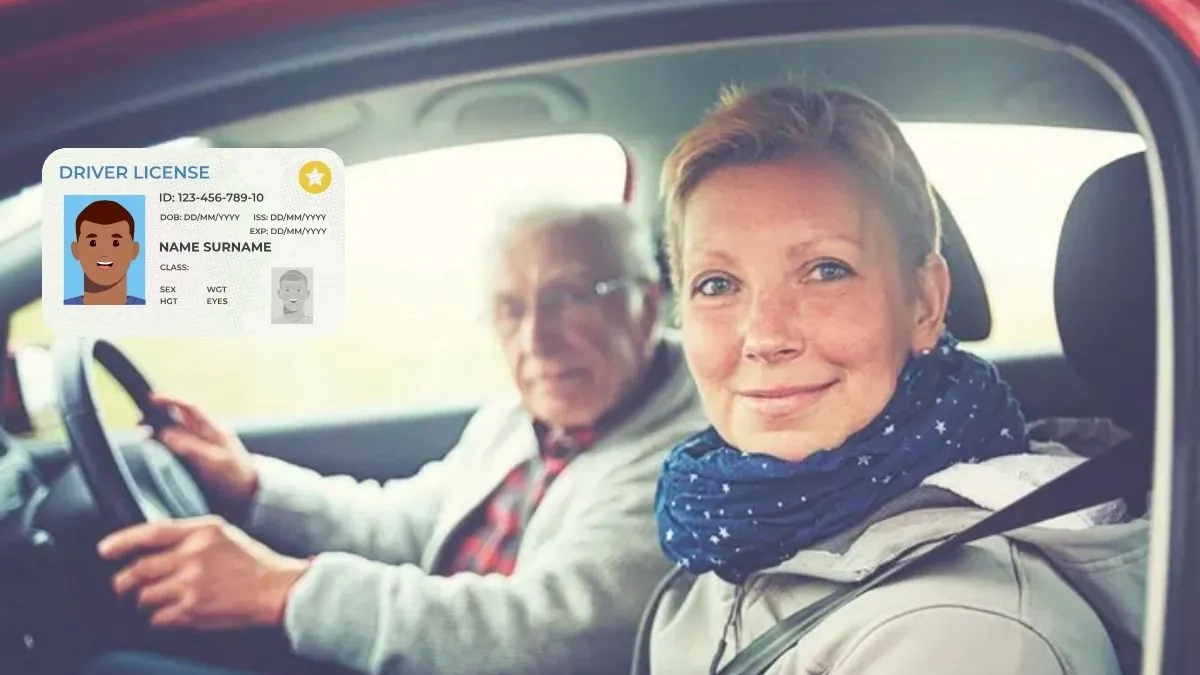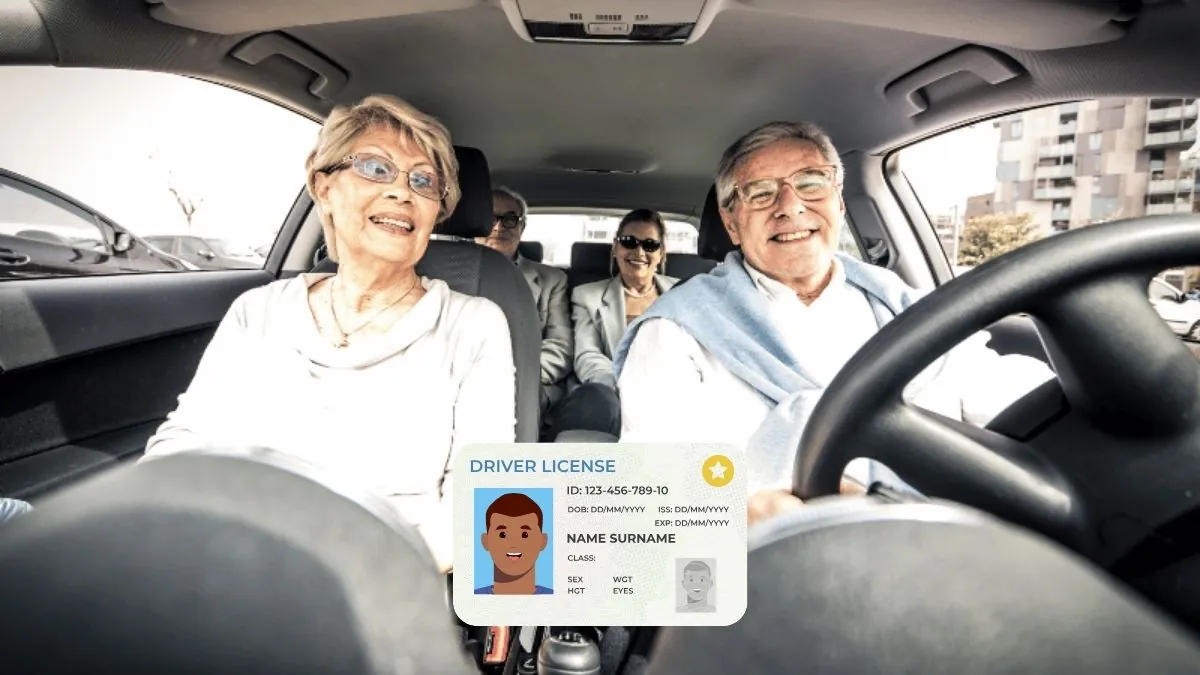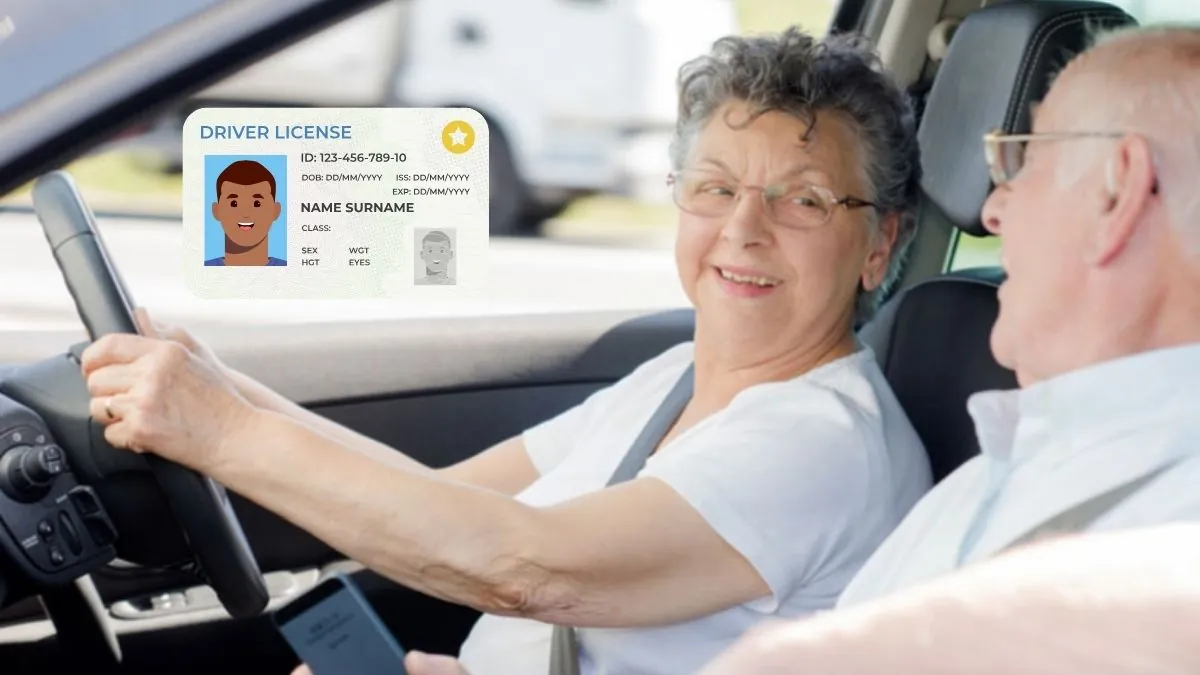As the Baby Boomer generation ages, the number of senior drivers on the road continues to increase. In Michigan, this demographic shift has prompted special considerations for drivers over a certain age, particularly when it comes to license renewals. Understanding the rules and regulations surrounding license renewal is crucial for senior drivers and their families, ensuring that older adults remain safe and compliant on the road. This article provides an in-depth look at the license renewal process for seniors in Michigan in 2024, addressing everything from eligibility requirements to special considerations and common concerns.
Michigan’s Licensing System Overview
Michigan’s driver licensing system is overseen by the Michigan Department of State, which ensures that all drivers meet the necessary qualifications to operate a vehicle safely. Michigan operates on a tiered licensing system that allows for different types of licenses, including standard and enhanced licenses. A standard driver’s license is valid for four years, while an enhanced driver’s license (EDL), which also serves as a federally recognized identification for crossing certain borders, is valid for the same duration but offers additional benefits.
The renewal process varies slightly depending on the type of license, but generally, all drivers must renew their licenses in person, by mail, or online. However, senior drivers face specific requirements and considerations due to age-related changes that may affect their ability to drive safely.
Senior Drivers: A Growing Demographic
Michigan, like many other states, has seen a significant increase in the number of senior drivers. According to the U.S. Census Bureau, the population of Michigan residents aged 65 and older was approximately 1.7 million in 2020, representing nearly 17% of the state’s total population. This number is projected to grow, with estimates suggesting that by 2030, one in five Michigan residents will be over the age of 65.
This demographic shift has implications for road safety, as older adults are more likely to experience health issues that can affect their driving abilities. In response, Michigan has implemented specific regulations and programs aimed at ensuring that senior drivers can continue to drive safely.
License Renewal Process for Seniors in Michigan
Eligibility Criteria
In Michigan, senior drivers must renew their licenses every four years, regardless of age. However, once a driver reaches the age of 65, the state begins to impose additional requirements to ensure that the individual can safely operate a vehicle.
To renew a driver’s license in Michigan, the applicant must:
- Be a resident of Michigan.
- Hold a valid, unexpired driver’s license.
- Meet the vision and medical requirements set by the state.
- Provide proof of identity, residency, and social security number (if applicable).
Required Documentation
When renewing a driver’s license, seniors must provide specific documentation to verify their identity and residency. This documentation may include:
- Proof of Identity: Such as a birth certificate, passport, or permanent resident card.
- Proof of Social Security Number: Such as a social security card, W-2 form, or pay stub.
- Proof of Residency: Such as a utility bill, bank statement, or lease agreement.
It is essential to ensure that all documents are up-to-date and accurate, as any discrepancies can delay the renewal process.
Renewal Methods
Senior drivers in Michigan have several options for renewing their licenses:
- In-Person: The most common method for license renewal is visiting a local Secretary of State (SOS) office. This method is often required for seniors who need to take a vision test or update their medical information. Michigan has over 130 SOS branch offices across the state, including locations in major cities like Detroit, Grand Rapids, and Lansing.
- Online: Some seniors may be eligible to renew their licenses online, provided they meet certain criteria. Online renewal is available to those who do not require a new photo, vision test, or medical review. The online renewal process is straightforward and can be completed through the Michigan Department of State’s official website.
- By Mail: Seniors who are unable to renew in person due to health or mobility issues may be eligible to renew their licenses by mail. This option is typically available to those who have renewed in person in the past and do not require additional testing.
Vision and Medical Requirements
Vision Test Requirements
Vision is a critical component of safe driving, and Michigan requires all drivers to meet specific vision standards to renew their licenses. For seniors, this requirement becomes even more important as age-related vision changes, such as cataracts or macular degeneration, can impair driving ability.
When renewing in person, seniors must pass a vision test administered at the SOS office. The test measures visual acuity (clarity of vision) and peripheral vision (the ability to see objects on the sides while looking straight ahead). Michigan law requires drivers to have at least 20/40 vision in at least one eye, with or without corrective lenses. If a senior driver fails the vision test, they may be referred to an eye care professional for further evaluation.
Medical Reporting and Evaluation
In addition to the vision test, seniors may be required to report certain medical conditions that could affect their ability to drive safely. These conditions may include:
- Diabetes: Uncontrolled diabetes can lead to vision problems, loss of consciousness, or other complications that impair driving.
- Heart Disease: Conditions such as arrhythmia or heart failure can increase the risk of a sudden medical emergency while driving.
- Neurological Disorders: Conditions like Parkinson’s disease, epilepsy, or dementia can affect a driver’s coordination, reaction time, and judgment.
Michigan requires drivers to self-report any medical conditions when renewing their licenses. In some cases, the SOS may require a medical evaluation from a physician to determine whether the driver is fit to continue driving. The SOS may also place restrictions on the license, such as requiring the driver to wear corrective lenses or limiting driving to daylight hours.
Special Considerations for Seniors
Age-Related Changes and Driving
As drivers age, they may experience changes in their physical and cognitive abilities that can affect their driving. These changes may include slower reaction times, reduced flexibility, and difficulty seeing at night. Michigan offers resources to help senior drivers stay safe on the road, including driver refresher courses and educational materials.
Michigan’s Driver Refresher Course for Seniors
Michigan offers a driver refresher course specifically designed for seniors. This course, often referred to as a Mature Driver Course, covers topics such as defensive driving techniques, the effects of medications on driving, and how to adjust to age-related changes. Completing this course may also qualify seniors for discounts on their auto insurance premiums.
The course is available through various organizations, including AARP and AAA, and can be taken online or in person. Some insurance companies also offer their own versions of the course.
Voluntary License Surrender Program
For seniors who no longer feel comfortable driving, Michigan offers a voluntary license surrender program. This program allows seniors to voluntarily give up their driver’s licenses in exchange for a state ID card. The state ID card serves as a valid form of identification for non-driving purposes, such as banking or voting.
Surrendering a driver’s license can be a difficult decision, but it is an option for seniors who want to ensure their safety and the safety of others on the road. Family members can play a supportive role in this decision, helping their loved ones explore alternative transportation options.
Penalties for Lapsed Licenses
It’s important for seniors to renew their licenses on time to avoid penalties. In Michigan, driving with an expired license is illegal and can result in fines, points on the driving record, and potential legal action. If a senior’s license has been expired for more than four years, they may be required to retake the written and driving tests to regain their driving privileges.
To avoid these penalties, seniors should pay close attention to their license expiration date and begin the renewal process well in advance. The Michigan Department of State typically sends a renewal notice by mail approximately 45 days before the license expires.
Common Questions and Concerns
What if I Can’t Pass the Vision Test?
If a senior driver fails the vision test, they will be referred to an eye care professional for further evaluation. The eye care professional will complete a Vision Specialist’s Statement, which the driver must submit to the SOS. Depending on the results, the SOS may issue the driver a restricted license, require corrective lenses, or, in some cases, deny the renewal.
Can I Renew Online?
Online renewal is an option for seniors who meet specific criteria, such as not needing a new photo, vision test, or medical review. The online renewal process is convenient and can be completed through the Michigan Department of State’s official website. However, seniors should be aware that not all renewal applications can be processed online.
What Are the Alternatives if I Choose Not to Drive?
For seniors who choose not to renew their licenses, there are several alternative transportation options available in Michigan. These options include:
- Public Transportation: Many cities in Michigan, including Detroit and Ann Arbor, offer robust public transportation systems that seniors can use to get around.
- Ridesharing Services: Companies like Uber and Lyft operate in many Michigan cities, providing convenient transportation options for seniors who no longer wish to drive. These services are accessible through smartphones, and some communities offer assistance programs to help seniors learn how to use them.
- Community Transportation Programs: Many local communities offer transportation services specifically for seniors. These programs often provide door-to-door service and can be scheduled for medical appointments, grocery shopping, and other essential errands. For example, the Detroit Area Agency on Aging and similar organizations throughout the state offer these services to help seniors maintain their independence.
- Family and Friends: Relying on family members, friends, or neighbors can be a viable option for seniors who have a strong support network. Many seniors find that carpooling with others or arranging regular rides with family members can be a convenient alternative to driving.
Conclusion and Final Tips
Navigating the license renewal process can be challenging for seniors, but understanding the requirements and options available in Michigan can make the process smoother. As the senior population continues to grow, it’s important for older adults to stay informed about the regulations and resources that can help them maintain their independence and safety on the road.
Here are some final tips for seniors preparing for license renewal in Michigan:
- Plan Ahead: Start the renewal process early to ensure you have ample time to gather the necessary documents, schedule any required tests, and complete the renewal before your license expires.
- Stay Informed: Keep up with any changes in state regulations or policies regarding senior drivers. The Michigan Department of State website is a valuable resource for the latest information.
- Consider Your Health: Regular check-ups with your healthcare provider and eye doctor can help you stay on top of any medical conditions that could affect your driving. Addressing these issues early can prevent complications during the renewal process.
- Explore Alternatives: If you’re concerned about your ability to continue driving safely, explore alternative transportation options in your community. Michigan offers a variety of services to help seniors maintain their mobility without driving.
- Stay Safe: Enroll in a mature driver course to refresh your driving skills and learn strategies for staying safe on the road. These courses can also help you qualify for insurance discounts.
By taking these steps, Michigan seniors can ensure they remain safe, independent, and informed drivers as they navigate the road ahead. The state’s licensing system is designed to support older adults while promoting road safety, and by staying proactive, seniors can continue to enjoy the freedom that driving provides.
This Article Includes







